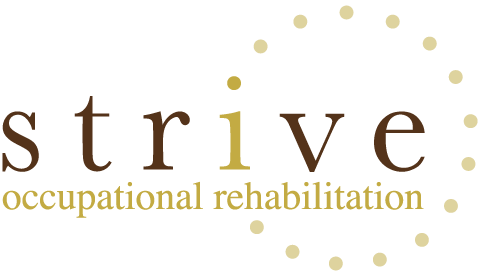Myth: Sleep often needs to be sacrificed for work
The belief that work doesn’t influence employees’ sleep hygiene is outdated and overlooks the significant impact that work environments, culture, and inflexible schedules can have on sleep quality. For over three decades, NASA has been at the forefront of researching the effects of sleep deprivation on work performance. Through their studies, they’ve recognized how crucial sleep is for optimal functioning and have implemented small but impactful changes to support their employees’ sleep hygiene. These efforts highlight the importance of fostering a work environment that prioritizes sleep, ensuring better well-being and productivity for everyone.

The original 1995 NASA study found that pilots who napped for 26 minutes experienced up to a 54% increase in alertness and a 34% increase in performance on the job, compared to those who didn’t nap. Additionally, they experienced less sleepiness toward the ends of their flights, while the pilots who did not nap showed twice as much sleepiness.In more recent studies unrelated to NASA, brief naps, also often called power naps, have continued to show benefits, including:
- Improved memory and creativity
- Improved reaction time
- Better heart health
- Increased focus and concentration
- Lower blood pressure
To combat sleep deprivation, NASA has developed strategies to help astronauts maintain optimal sleep. These include sleep management schedules that align with astronauts’ circadian rhythms, ensuring consistent rest. Light exposure protocols regulate sleep-wake cycles by controlling light frequencies, helping reset internal clocks in space’s unique environment. NASA also uses sleep aids like melatonin and relaxation techniques to support better sleep. Together, these efforts enhance astronauts’ physical and mental well-being, improving focus and performance during critical tasks and ensuring mission success.
So if NASA has seen the value in supporting their employee’s sleep, what can employers do to support their employees in a more mainstream work environment? We have some suggestions for you below.
Promote Flexible Working Hours: Allow employees to start and finish their day based on their natural energy levels, respecting different chronotypes and boosting productivity.
Bonus fact: A chronotype is an individual’s natural preference for being active at certain times of the day, either in the morning or at night, based on their internal circadian rhythm. Humans evolved with diverse chronotypes to ensure that there was always someone awake to monitor the environment, increasing safety and survival during vulnerable hours of the day and night.
Encourage a Healthy Work-Life Balance: Support employees in taking breaks, disconnecting outside of office hours, and valuing personal time to reduce burnout and improve sleep.
Educate on Sleep Hygiene: Offer workshops or resources on habits that improve sleep, such as avoiding screens before bed and setting a consistent bedtime.
Provide Quiet, Comfortable Workspaces: Create quiet, ergonomic spaces that help employees focus and reduce stress, fostering better rest and productivity.
Encourage Breaks for Physical Activity: Support physical activity, like walking meetings or gym memberships, as exercise improves sleep quality and mental clarity.
Reduce Workplace Stress: Foster a supportive environment where employees feel comfortable discussing challenges. Offer mental health support and stress management resources.
Offer Sleep-Friendly Benefits: Provide benefits like sleep trackers, noise-canceling headphones, or nap rooms to help employees prioritize rest.
Lead by Example: CEOs and managers should set boundaries for work hours and openly prioritize sleep, encouraging employees to do the same.
Avoid Late-Night Communications: Implement policies to reduce after-hours work communications and use scheduling tools to ensure messages are sent during working hours.
Focus on Output Over Hours: Shift the focus from time spent at a desk to the quality of work. Encourage employees to take time off to recharge when needed.
By adopting these strategies, employers can create a healthier, more productive workplace that supports both employee well-being and performance.
Further Reading and Resources:
The Power of When by Michael Breus
This book is a deep dive into the science of chronotypes, and how understanding your personal chronotype can help you optimize your schedule for peak performance.
The Power of When
National Sleep Foundation
For a thorough overview of sleep and how chronotypes play a role in our daily rhythms, the National Sleep Foundation offers comprehensive resources.
National Sleep Foundation
Chronobiology and Sleep – Current Biology Journal
This research article discusses how our circadian rhythms govern sleep and wakefulness, offering insights into the genetic basis of chronotypes.
Current Biology Journal
Sleep and Mental Health – Journal of Sleep Research
A scholarly article exploring the connection between sleep patterns, cognitive performance, and overall well-being, including differences across chronotypes.
Journal of Sleep Research

 Sleep Week 2025: Myth #1: Sleeping medication is the best treatment.
Sleep Week 2025: Myth #1: Sleeping medication is the best treatment. 